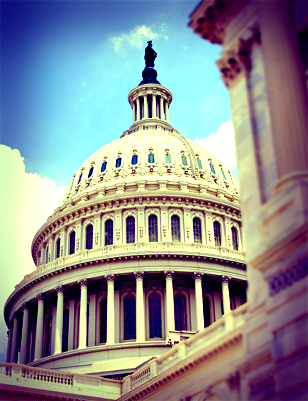The Senate Judiciary Committee took a giant step backward on Tuesday, adopting a considerably softer set of rules for H-1B workers, thus pleasing the big high-tech firms while hurting American workers.
Sens. Chuck Schumer (D-N.Y.), Dick Durbin (D-Ill.), Orrin Hatch (R-Utah), Lindsay Graham (R-S.C.), and others created — off stage — a last-minute compromise on the subject, which passed the committee by a voice vote and led later to a 13-5 vote in the committee on the proposed bill itself (S.744).

Sens. Chuck Grassley (R-Iowa) and Jeff Sessions (R-Ala.) were the only ones who consistently voted against the multitudinous more-migration measures.
Such a committee vote would seem to presage easy passage of the bill by the full Senate, with its fate in the House being uncertain. The 18 senators on the committee are, among other things, a big sample of the hundred members of that body.
At about four in the afternoon Sen. Hatch began speaking about a compromise measure he and the other senators named above had worked out earlier in the day; the big elements of the deal (which became known to other senators at 11:40 Tuesday morning) were: 1) that were the amendment to be accepted it would probably cause Sen. Hatch to support the entire bill, including the amnesty of 11 million illegals; and 2) that there would be a different, and generally less restrictive set of rules for H-1B and L-1 employers.
Getting Sen. Hatch on board the amnesty bill has been a major objective of the Gang of Eight, as I wrote in an earlier blog and as the New York Times reported Tuesday morning.
I did not have a chance, and maybe no one other than senators had the opportunity, to read the text of the 19-page Hatch Amendment, but the provisions discussed seemed to generally make life easier for the users of H-1B workers. For example, an effort by Sen. Grassley to impose the same good-faith effort to recruit American workers requirement on all H-1B employers, not just those who are regarded as H-1B dependent, was defeated.
H-1B-dependent employers are defined, in earlier law, as those with more than 50 workers and with 15 percent of those workers in H-1B status. Most big American IT employers, such as Microsoft and Intel, are not covered by this definition, but it does cover most of the large Indian outplacement firms.
These firms were to be barred from renting their employees to other firms — their principal business — in the original Gang of Eight bill; but, I gathered from something Sen. Durbin said that they would be given three years under the Hatch amendment to come into compliance with this provision.
This was a major breakthrough for the Indian firms, who had been used as scapegoats by the large American IT firms in earlier stages of the bill. This was an effort to place all the problems inherent in the program on the Indian companies, thus avoiding criticism of American ones. There also appeared to be an effort by the U.S. firms to frame the new law in such a way as to seriously diminish the use of the program by the Indian firms, meaning more of the numerically limited visas would be available to the American firms.
The 10 biggest users of H-1B workers are the Indian firms, and they rarely convert their workers to green card status. Both of these facts were mentioned at least once in Tuesday's debate.
However, it appeared that the outsourcing firms also lost a major round in the last-minute compromise. The 15 percent requirement was apparently made stricter in the same Hatch amendment, with a new clause saying that the percentage was to be of their professional employees, not their total employees. This provision was designed to head off an escape mechanism for the Indian firms that had been discussed within the industry. The firms apparently contemplated merging with (or buying) American organizations with lots of U.S. workers and thus expanding their total workforce to the extent that their H-1B staff would constitute less than 15 percent of their total employment. The new provision would seem to outlaw that proposed maneuver.
Earlier in the day another — and far better — cause pressed by Hatch lost. He had wanted illegals seeking amnesty to pay all their federal back taxes, not just the taxes narrowly defined in S.744. His colleague Mike Lee (R-Utah) introduced an amendment along these lines, but it was defeated by the committee. Interestingly, the vote was taken in Hatch's absence and it was Lee's amendment that they voted down, not the nearly identical Hatch amendment. Perhaps that was happenstance, or perhaps a little Capitol Hill theater.
Whichever, there will be no serious effort to obtain back taxes from the amnestied in the current version of S.744.
The committee approved the bill Tuesday night by a vote of 13-5 and sent it to the floor, where it will likely be debated next month.


